Hyundai IONIQ 5 vs VW Polo – Differences & prices compared
Compare performance, boot space, consumption and price in one view.
Find out now: which car is the better choice for you – Hyundai IONIQ 5 or VW Polo?
The Hyundai IONIQ 5 (SUV) comes with a Electric engine and Automatic transmission. In comparison, the VW Polo (Hatchback) features a Petrol engine with Manuel or Automatic transmission.
When it comes to boot capacity, the Hyundai IONIQ 5 offers 520 L, while the VW Polo provides 351 L – depending on how much space you need. If you’re looking for more power, decide whether the 650 HP of the Hyundai IONIQ 5 or the 207 HP of the VW Polo suits your needs better.
In terms of consumption, the values are 15.60 kWh per 100 km for the Hyundai IONIQ 5, and 5.10 L for the VW Polo.
Price-wise, the Hyundai IONIQ 5 starts at 38500 £, while the VW Polo is available from 17000 £. Compare all the details and find out which model fits your lifestyle best!
Hyundai IONIQ 5
The Hyundai IONIQ 5 showcases a bold and futuristic design that captures attention with its striking facade and sharp lines. This electric vehicle offers an impressive blend of performance and efficiency, making it a compelling choice for environmentally conscious drivers. Inside, the spacious and tech-forward interior provides a comfortable and engaging driving experience for both driver and passengers.
details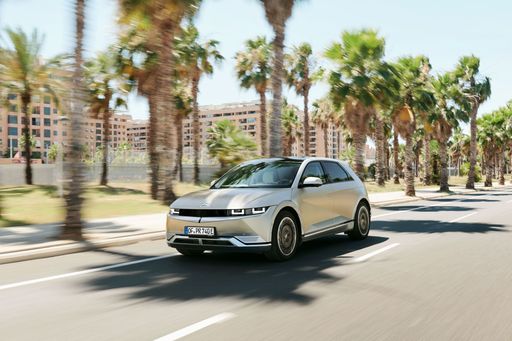 @ hyundai.news
@ hyundai.news
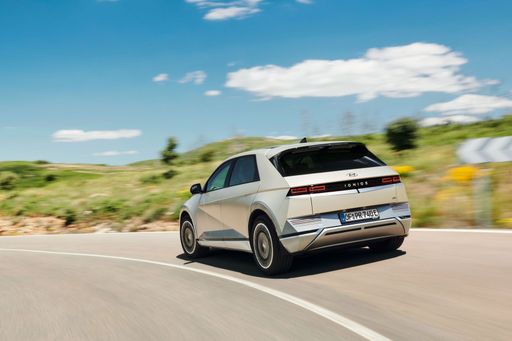 @ hyundai.news
@ hyundai.news
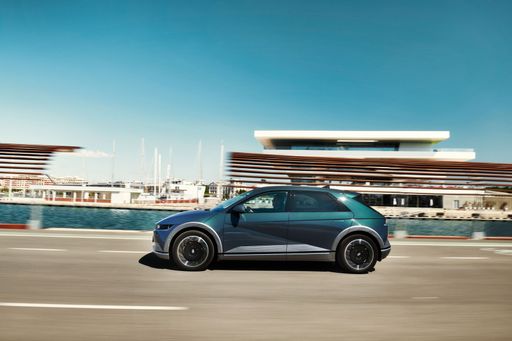 @ hyundai.news
@ hyundai.news
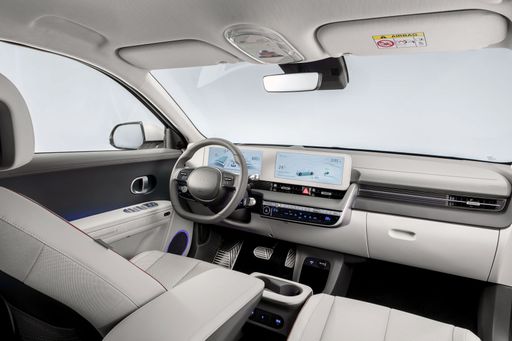 @ hyundai.news
@ hyundai.news
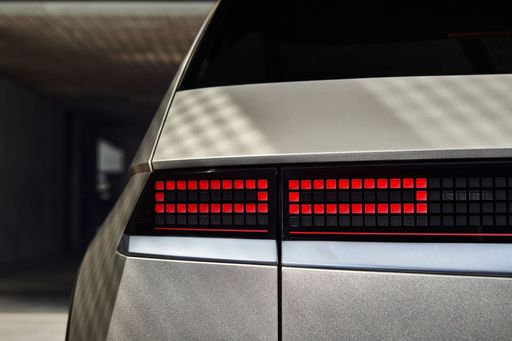 @ hyundai.news
@ hyundai.news
VW Polo
The VW Polo remains a popular choice in the compact car segment, known for its sleek design and sophisticated styling. Inside, it offers a surprisingly spacious cabin with high-quality materials and intuitive technology features, ensuring a comfortable driving experience. Its agile handling and responsive performance make it an excellent option for both city commuting and longer journeys.
details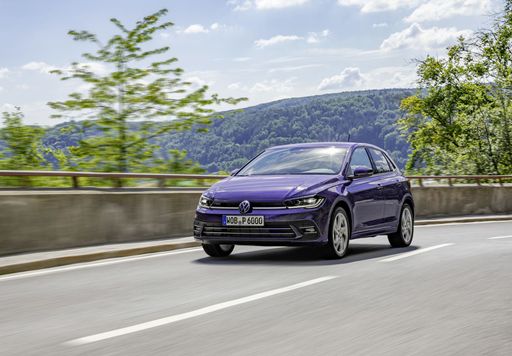 @ Volkswagen
@ Volkswagen
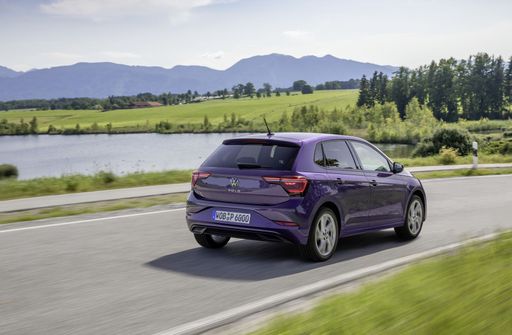 @ Volkswagen
@ Volkswagen
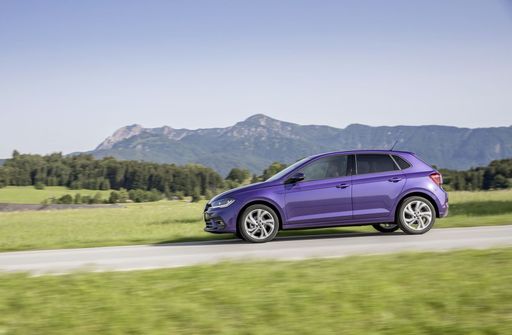 @ Volkswagen
@ Volkswagen
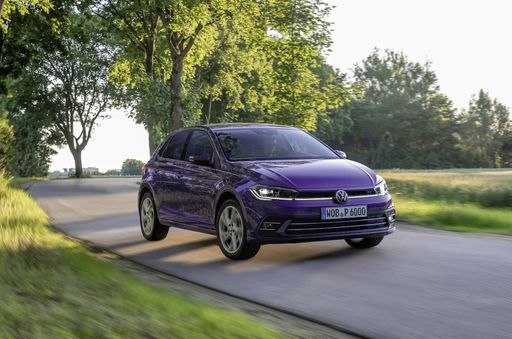 @ Volkswagen
@ Volkswagen
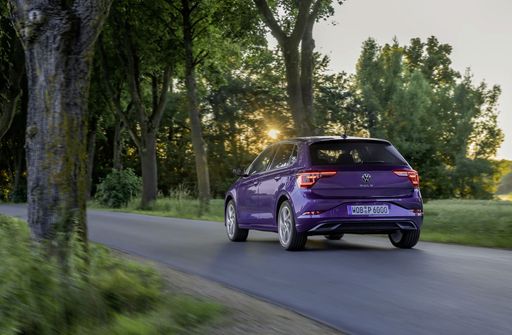 @ Volkswagen
@ Volkswagen
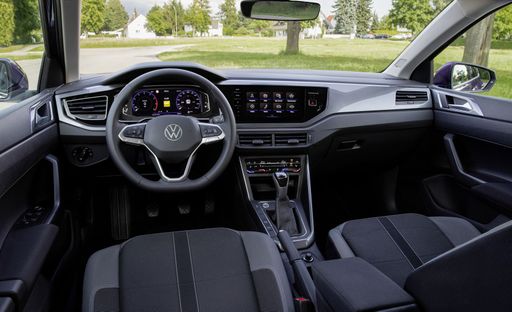 @ Volkswagen
@ Volkswagen

|

|
|
|
|
Costs and Consumption |
|
|---|---|
|
Price
38500 - 64200 £
|
Price
17000 - 30400 £
|
|
Consumption L/100km
-
|
Consumption L/100km
5.1 - 6.5 L
|
|
Consumption kWh/100km
15.6 - 21.2 kWh
|
Consumption kWh/100km
-
|
|
Electric Range
440 - 570 km
|
Electric Range
-
|
|
Battery Capacity
63 - 84 kWh
|
Battery Capacity
-
|
|
co2
0 g/km
|
co2
116 - 148 g/km
|
|
Fuel tank capacity
-
|
Fuel tank capacity
40 L
|
Dimensions and Body |
|
|---|---|
|
Body Type
SUV
|
Body Type
Hatchback
|
|
Seats
5
|
Seats
5
|
|
Doors
5
|
Doors
5
|
|
Curb weight
1955 - 2275 kg
|
Curb weight
1143 - 1378 kg
|
|
Trunk capacity
480 - 520 L
|
Trunk capacity
351 L
|
|
Length
4655 - 4715 mm
|
Length
4074 mm
|
|
Width
1890 - 1940 mm
|
Width
1751 mm
|
|
Height
1585 - 1605 mm
|
Height
1431 - 1451 mm
|
|
Payload
385 - 530 kg
|
Payload
432 - 457 kg
|
Engine and Performance |
|
|---|---|
|
Engine Type
Electric
|
Engine Type
Petrol
|
|
Transmission
Automatic
|
Transmission
Manuel, Automatic
|
|
Transmission Detail
Reduction Gearbox
|
Transmission Detail
Manual Gearbox, Dual-Clutch Automatic
|
|
Drive Type
Rear-Wheel Drive, All-Wheel Drive
|
Drive Type
Front-Wheel Drive
|
|
Power HP
170 - 650 HP
|
Power HP
80 - 207 HP
|
|
Acceleration 0-100km/h
3.5 - 8.5 s
|
Acceleration 0-100km/h
6.5 - 15.6 s
|
|
Max Speed
185 - 260 km/h
|
Max Speed
171 - 240 km/h
|
|
Torque
350 - 770 Nm
|
Torque
93 - 320 Nm
|
|
Number of Cylinders
-
|
Number of Cylinders
3 - 4
|
|
Power kW
125 - 478 kW
|
Power kW
59 - 152 kW
|
|
Engine capacity
-
|
Engine capacity
999 - 1984 cm3
|
General |
|
|---|---|
|
Model Year
2024
|
Model Year
2024 - 2025
|
|
CO2 Efficiency Class
A
|
CO2 Efficiency Class
D, E
|
|
Brand
Hyundai
|
Brand
VW
|
Hyundai IONIQ 5
Introducing the Hyundai IONIQ 5: A New Era in Electric Mobility
The Hyundai IONIQ 5 is a revolutionary addition to the electric car market, blending futurist aesthetics with ingenious technological features. As part of Hyundai's all-electric lineup, the IONIQ 5 exudes a refreshing approach to sustainable motoring, offering a blend of power, efficiency, and innovation that is set to transform everyday driving.
A Futuristic Design
The IONIQ 5 sets new standards in automotive design with its distinctive silhouette. Its clamshell bonnet and pixelated LED light design form a unique visual signature, evoking a sense of modernity and advancement. Built on Hyundai's Electric-Global Modular Platform (E-GMP), this SUV heralds a new direction for electric vehicles, serving both form and function with a flat floor that maximises interior space.
Performance and Efficiency
The Hyundai IONIQ 5 offers a variety of powertrains to cater to different driving preferences. Depending on the model, power output ranges from 170 PS to a staggering 609 PS, with corresponding torque between 350 Nm and 740 Nm. These configurations enable a brisk acceleration capability, reaching 0-100 km/h in as little as 3.5 seconds.
The car’s battery options of 63 kWh and 84 kWh provide flexibility between range and performance. The efficiency of the IONIQ 5 is admirable, with a consumption ranging from 15.6 to 21.2 kWh/100km, ensuring the capability to travel up to 570 km on a single charge.
Innovative Technology
The IONIQ 5 isn't just about efficient propulsion; it's laden with cutting-edge technology that enhances the driving experience. The vehicle includes an ultra-fast charging capability, able to reclaim 80% of the battery life within just 18 minutes. This is complemented by Vehicle-to-Load (V2L) technology, which turns the IONIQ 5 into a power source to charge devices or even other electric vehicles.
Comfort and Convenience
Inside, the IONIQ 5 continues to impress with a spacious and flexible cabin that maximises comfort and utility. Its minimalist dashboard, dual 12.3-inch screens for infotainment and digital instrument cluster, and extensive use of eco-friendly materials contribute to a serene driving environment.
Safety Meets Innovation
Hyundai has equipped the IONIQ 5 with an array of advanced driver assistance systems. These include features such as Smart Cruise Control, Highway Driving Assist, and Remote Smart Parking Assist, ensuring that safety is paramount without sacrificing convenience.
The Future of Sustainable Driving
With a CO2 efficiency class of A and zero emissions, the Hyundai IONIQ 5 signifies a shift towards more sustainable driving practices. Its blend of technology, performance, and aesthetic appeal positions it as a pivotal player in the electric vehicle market, paving the way for a cleaner, greener future in automotive design.
VW Polo
Unveiling the VW Polo: A Compact Car with Big Ambition
The VW Polo, with its sleek hatchback design, stands out in the compact car segment, offering a blend of practicality and innovation. Volkswagen has continued to refine this popular model, ensuring that each new iteration provides cutting-edge technology and enhanced driving dynamics.
A Closer Look at the Mechanics
Under the bonnet, the VW Polo offers a series of efficient petrol engines ranging from 80 to 207 horsepower. These engines, coupled with either a manual or dual-clutch automatic transmission, provide a smooth and responsive driving experience tailored to various driving preferences.
Efficiency Meets Performance
The fuel consumption of the VW Polo is impressively economical, varying between 5.2 and 6.5 litres per 100 km, depending on the engine and transmission combination. Emphasising the car's commitment to sustainability, the CO2 emissions vary between 118 to 149 g/km, placing it within the D to E efficiency classes.
Design and Dimensions
The Polo's dimensions, featuring a length of 4074 mm, width of 1751 mm, and a height ranging from 1431 to 1451 mm, offer a compact profile ideal for urban driving. Despite its size, the Polo provides a generous 351-litre boot space, catering to everyday needs and beyond. With a five-door configuration, it balances convenience and style.
Advanced Features and Variants
The VW Polo 2024 model year comes with a variety of trim levels, from the practical "Life" to the sportier "R-Line", each bringing distinct features and enhancements. High-tech interiors, usability enhancements, and a host of driver-assistance systems are standard, reflecting Volkswagen's dedication to integrating innovation into its vehicles.
Tech-Savvy Interiors
Inside, the Polo is equipped with modern infotainment systems, Apple CarPlay, Android Auto, and wireless connectivity options, ensuring that drivers and passengers remain connected while on the move. The ergonomically designed cabin and digital cockpit enhance the user experience, making every drive comfortable and intuitive.
Conclusion: The All-Rounder in the Compact Car Market
The VW Polo continues to be a compelling choice for those seeking a compact, reliable, and technologically advanced vehicle. With its range of engines, well-appointed interiors, and a robust suite of features, the Polo remains a significant player in its class, meeting the demands of a wide range of drivers.
What drive types are available for the Hyundai IONIQ 5?
The Hyundai IONIQ 5 is available as Rear-Wheel Drive or All-Wheel Drive.
The prices and data displayed are estimates based on German list prices and may vary by country. This information is not legally binding.
